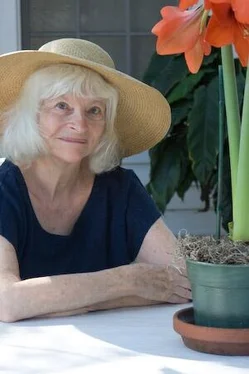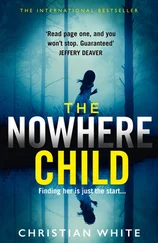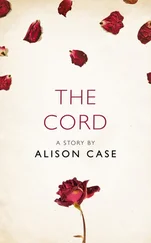Maxie had done what he could to mop up the mess. First he got the girl back into the lobby and started talking to her; come on, after all, he told her, Glory is a fan of Rory Gunn’s same as you are; you ought to appreciate what she felt like when you shoved yourself in like that; besides you ruined her new two-hundred-dollar dress for her. It went over pretty well: at least the kid stopped crying, and Maxie got a taxi around to the stage door and sent her home before the newspaper guys could get to her again. In the morning he ordered two lots of flowers delivered to the kid’s house: some daffodils and a whole lot of other spring stuff from Glory, and three dozen red roses from Rory Gunn. Of course Maxie couldn’t kill the story—but he spoke to the guys, giving them pretty much the same line: that Glory was so stuck on Rory Gunn and his marvelous performance in Dancing Cowboy that she just saw red when anybody got in her way. This story had appeared in the morning papers which lay about on the floor at Maxie’s and Glory’s feet. As he said now, it could have been a lot worse, even the photos.
“Uh-huh,” Glory uttered. “Listen, thanks for everything, Maxie,” she added in a dull, throaty voice, and drank some Tiger’s Milk. “You’re a doll.”
“That’s okay. At least you appreciate.” Maxie wiped his face and began stripping the crusts off half a sandwich. “I wonder should I check up on that kid again this afternoon, how she’s feeling, is she okay?”
“No,” Glory said. “Let’s drop it.”
“Maybe you’re right. I sent flowers already; we don’t want to start a correspondence.”
“Yeah. Besides, she hit me first,” Glory pointed out, not for the first time.
“She’s a fan,” Maxie said. “It doesn’t make any difference what she did. You can’t sock a fan. Also she’s only fourteen years old. A kid.”
“Yeah, well, shit: how was I supposed to know that? You tell her next time she wants to push somebody in the face bring her birth certificate.”
Maxie winced. It always bothered him when Glory’s language became too vulgar; he was trying to put her across as basically a sweet kid. He shifted around and sat sideways in his chair, facing her. “Something else I got in my mind,” he said. “I want to suggest a new image. We got to black out this picture you don’t like fans. I thought of a gimmick this morning we could use, maybe. I want to put out a release—how does this sound?—Glory Green, now working in Superb’s big new musical, etcetera, has a very personal relationship to her growing number of fans all over the world. Glory reads every day all the letters she receives, and she says she picks up lots of acting tips and good advice about her career from the girls and boys who follow her pictures: how does that sound?”
“Okay,” Glory said listlessly.
“Swell. Also I thought I’d call up Camilla at Screen Scoops, offer we could give her an exclusive. Maybe she can send somebody over this week-end and get some pictures. Like an example, I see you sitting at your antique writing-desk, nice outfit, serious expression, big piles of mail, dictating to your secretary. I like that.”
“Okay,” Glory repeated. “My secretary? You think I should have a secretary? Don’t you think that looks kind of too snooty?”
“Oh, nah. Everybody has a secretary. Liz Taylor has a secretary. Look at it this way: it shows how you’re real serious about your responsibilities; it’s like your business, these fan letters. I want to build up a nice picture. Anyhow, you got to get a secretary to answer the mail.”
Glory put the Thermos down and, turning her head slowly, looked at her agent through her fog of depression. “Aw, Maxie,” she said. “Do we really have to play this scene? I don’t think I can make it.”
“Don’t aggravate yourself. It’ll be no trouble.” Maxie registered Glory’s expression, and sought its probable cause. “Hey, you had a conversation with Iz this morning?” he asked. “Maybe he called you.”
Glory shook her head. “Why should he call me? He’s got nothing to talk to me about,” she said in a strained voice. “He doesn’t give a shit what happens to me.”
“Aw, Glory, baby. He’s calling you all the time already. This last month he’s phoned you eight, ten times.”
“Theven times,” she corrected him. “Exactly theven times.”
“That’s what I mean. He’s obviously carrying the torch. And look at you: six months, and you’re still very involved emotionally. I don’t understand. Next time he phones, why don’t you be a little nice to him?”
“That’s how you thee it,” Glory said. She opened her mouth to relate Iz’s latest betrayal, but could not bring herself to do so, and remained silent, staring into the dark spaces of the sound stage.
“Incidentally,” Maxie said, following his own train of thought. “I spoke to Bo Habenicht this A.M.” Bo was Rory Gunn’s agent. Maxie waited for Glory to ask “Yeah?” As she did not, he continued. “Rory’s happy as a kid about the statement you gave. You know it’s all gravy for him, that scene. Also he really appreciates your compliments. He wants to take you out some time this week, maybe tonight if you can make it.”
“You mean you and Bo want Gunn to take me out,” Glory said as flatly as was possible for her. This “commercial socializing,” as he called it, was one of the things Iz picked on most about her profession. “What’s the matter with him, doesn’t he know I’m married yet?”
“Aw, come on now.” Maxie laid his sandwich down on its waxed paper. What with the trouble last night and his nervous stomach (he had something inside there that was probably planning to be an ulcer) he had got practically no sleep. But this was his job; he gathered his forces. “What’s the difference to you? All I’m asking is you should sit at a table with Rory an hour or so in a couple of night spots. I’m not suggesting to spend a weekend with him.”
“With that fag? You better not. That guy’s so minty he gives me the creeps.”
“Baby, you got to think of the publicity angle. If you show around town with Rory a couple times, all this trouble could blow over; it even could be to your advantage. Also, the studio would like it. How do you think it’s going to look to them, you turn down a date with Rory Gunn? You should be flattered.”
Glory paid no attention to this hard sell, but continued with her own thoughts. “I’ll bet that’s the first time in that fruit’s life he ever had two women really fighting over him. No wonder he was stunned.” She gave a short laugh.
With a grating noise, the sliding door to the building slid open behind them. The strip of smog and sunlight widened across the floor, and a party of five or six new starlets entered the sound stage, accompanied by a minor studio executive named Baby Petersen, who was showing them over the lot.
“Glory, baby!” he called out. “Hey, c’mon over here, girls! I want you to meet a kid who’s really making it.”
Squeaking and tripping over the electric cables, the starlets crossed the floor towards Glory. They were all very young, more or less beautiful, and immensely got up, with lacquered hair, nylon eyelashes, and layers of petticoats—exquisite dolls, dressed for a party by some little girl too old to play with dolls. One by one they held out their pink, sharp, manicured hands to Glory while Baby told her their brand-new studio names.
Glory responded politely. Four years ago she had been a kid like these; she had been through all it had taken to get them here and all they were about to be put through. They were the usual assortment—a couple of brunettes, one sultry and the other the ladylike type; a redhead who moved like a dancer; and some blondes of varying shades, at whom Glory looked hardest because there was a remote chance that one of them might be competition some day.
Читать дальше












